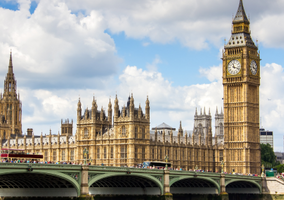A charity set up to tackle poverty in Yemen is being investigated by the regulator, in relation to funds sent to the country that have not been accounted for.
Last year, the Charity Commission opened a compliance case into Saba Relief and Development Foundation after it received complaints regarding the end use of charitable funds sent to Yemen.
Now, it has commenced a statutory inquiry into Saba Relief, which is based in Birmingham and was established in 2012.
A statement from the Commission said it is “concerned that the trustees have not adequately accounted for” funds sent to Yemen.
The concerns include “the charity’s ability to evidence charitable expenditure in accordance with the trustees’ legal duties”, the regulator said.
Due diligence concerns
Aside from Saba Relief’s use of charitable funds, the Commission said it would be looking into the “suitability of the charity’s partnerships, including the effectiveness of due diligence checks”.
Its investigation, which opened on 19 July, will also examine trustees’ compliance with their legal duties, “particularly in relation to compliance with the charity’s governing document”, the regulator said.
It added that it may expand the scope of its inquiry should additional issues come to light.
Health and education projects
Saba Relief’s income has grown significantly over the past few years, from £1.1m in 2019 to £5.5m in 2022.
Over the last three years for which figures have been available, this has come exclusively from donations and legacies.
Saba Relief’s expenditure has mostly risen in line with its income, with £5.3m of the £5.7m it spent in 2022 recorded as going on charitable activities.
Its most recent annual report says its achievements that year included building 30 water wells, expanding food distribution programmes and building partnerships with Yemeni healthcare providers.
Indeed, it describes itself as “exclusively [focusing] on raising funds for Yemen”, with which it “creates projects to benefit as many people as possible”.
It says money it raises pays for education, including buying essential school items and refurbishing classrooms damaged in Yemen’s decade-long conflict, essential medical supplies and equipment, and enabling access to clean water.
“Our offices on the ground in Yemen allow us to make practical, informed decisions about the best use of our aid,” the charity’s website says. “Moreover, it also allows us to directly benefit the people of Yemen, without any middlemen.”
Civil Society has approached Saba Relief and Development Foundation for comment.
Related Articles












